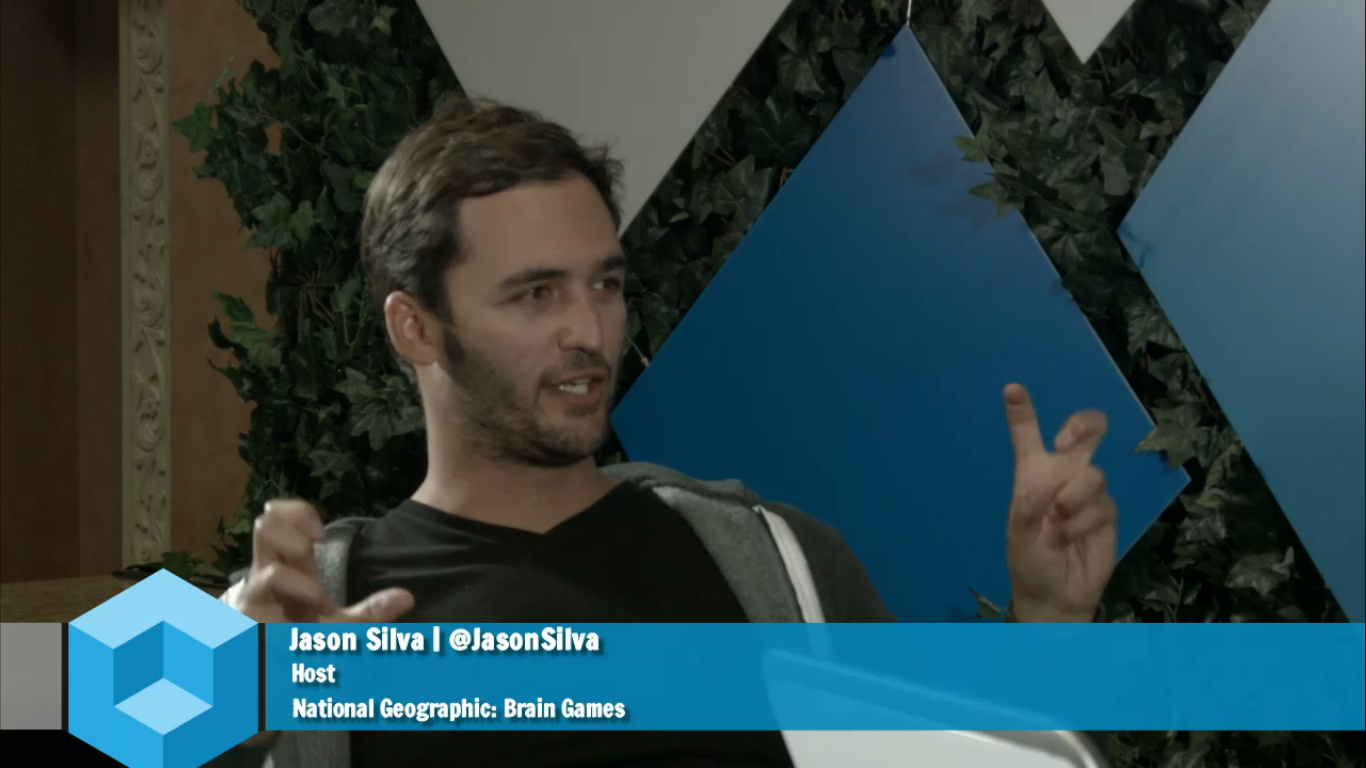 NEWS
NEWS
 NEWS
NEWS
 NEWS
NEWS
The impact of technology on humanity has been both vilified and touted by many. What’s undisputed, however, is the fact that technology is evolving at an exponential rate, and according to Jason Silva, host of the National Geographic channel’s Brain Games, this clashes with the “linear rate” of human cognition. This insight among many, were uncovered by Paul Gillin and George Gilbert, cohosts of theCUBE, from the SiliconANGLE Media team, who discussed with Silva humanity relationship with technology from the origins of tool making to the future of technological co-evolution.
Silva explained that tools are what humans are great at utilizing. Beginning with the invention of stone tools 80,000 years ago, he explained that this led to a “decreased jaw size” in humans. This may have been due to the lessened strength and size of the mouth to break down large, hard tissues for consumption. The invention of cooking through fire, grilling to many, he stressed was critical to providing increased energy as it breaks down the food allowing nutrients to be absorbed more easily and quickly.
These tools were in essence the first technology, and technology by extension a tool, and there’s no doubt that humanity has an increasing appetite for new technology.
Gillin brought up the overwhelming nature of technology and the anxiety brought by it, as well as the social responses to it in the form of creationism and support for simpler ways of doing things. While technology is overwhelming in many ways, it becomes greatly ingrained to the point where Silva says next we’ll be “missing” these technologies and that the harder problem for humans was dealing with the “speed” at which these changes occur. Extending on the idea of tools shaping humans, technology may similarly have an effect on our evolution as a species.
Silva points to a co-evolution of technology and people, which quickly prompted Gillin to note that the ease of search brings “atrophy” to memory and that not all of these changes may be positive. As with anything futurist, artificial intelligence (AI), may end up being one of those many technologies going forward that becomes as ingrained as cell phones have in places where even clean water is unavailable; a challenging conundrum.
Watch the full video interview below, and be sure to check out more of SiliconANGLE and theCUBE’s coverage of IBM Insight 2015. And join in on the conversation by CrowdChatting with theCUBE hosts.
Support our mission to keep content open and free by engaging with theCUBE community. Join theCUBE’s Alumni Trust Network, where technology leaders connect, share intelligence and create opportunities.
Founded by tech visionaries John Furrier and Dave Vellante, SiliconANGLE Media has built a dynamic ecosystem of industry-leading digital media brands that reach 15+ million elite tech professionals. Our new proprietary theCUBE AI Video Cloud is breaking ground in audience interaction, leveraging theCUBEai.com neural network to help technology companies make data-driven decisions and stay at the forefront of industry conversations.